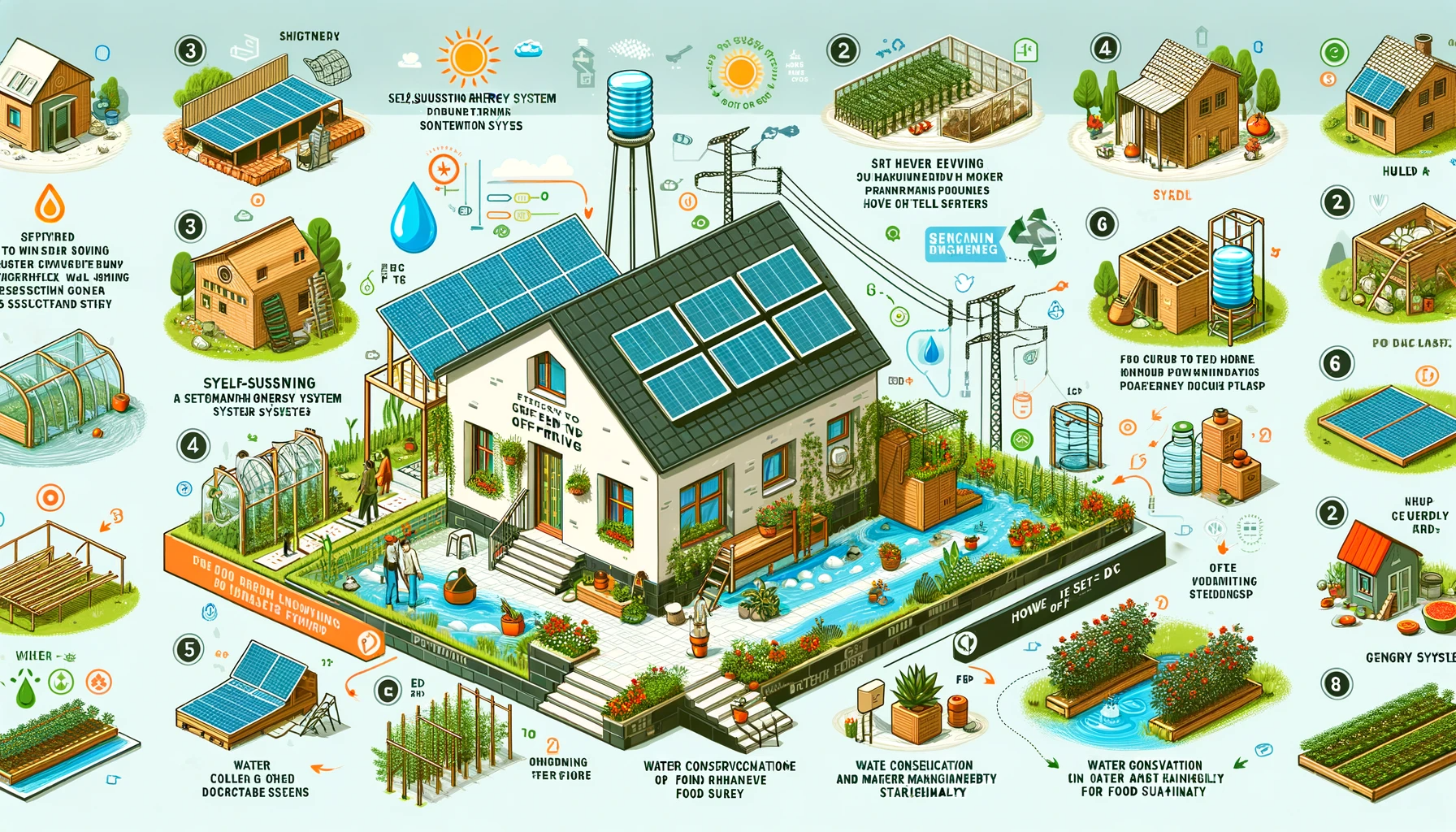Off-Grid Living for Beginners: The Ultimate Guide
 Dec 25,2023
Dec 25,2023

 Basen
Basen
Embarking on a Journey to Self-Sufficiency
Off-grid living is an increasingly popular lifestyle choice for those seeking independence from public utilities and a closer connection with nature. This comprehensive guide aims to provide beginners with essential insights into transitioning to an off-grid lifestyle.
Understanding Off-Grid Living
Off-grid living involves disconnecting from public utilities like electricity, water, and sewage systems and relying on self-sufficient methods:
- Energy: Solar panels, wind turbines, and generators are common renewable energy sources.
- Water: Rainwater harvesting, wells, and water purification systems are vital.
- Waste Management: Composting toilets and waste recycling methods are essential.
Planning Your Off-Grid Transition
Proper planning is key to a successful off-grid transition:
- Assess Your Needs: Evaluate your energy, water, and food requirements.
- Choose a Suitable Location: Consider climate, land regulations, and accessibility.
- Budgeting: Prepare a realistic budget for setup and ongoing expenses.
Setting Up Off-Grid Energy Solutions
Energy is a critical component of off-grid living:
- Solar Power: Invest in quality solar panels and batteries for energy storage.
- Wind Energy: In windy areas, wind turbines can complement solar power.
- Backup Generators: For consistent energy supply, consider a backup generator.
Securing a Reliable Water Source
Water is a lifeline in off-grid settings:
- Rainwater Harvesting: Set up systems to collect and store rainwater.
- Water Wells: If feasible, consider drilling a well for a steady water supply.
- Water Purification: Ensure water safety with purification systems.
Building an Off-Grid Home
Your home should align with off-grid principles:
- Eco-Friendly Construction: Use sustainable materials and energy-efficient designs.
- Insulation: Proper insulation can significantly reduce heating and cooling needs.
- Natural Lighting and Ventilation: Maximize natural light and air flow.

Growing Your Food
Self-reliance extends to food:
- Start a Garden: Grow vegetables and herbs suited to your climate.
- Raising Animals: Chickens, goats, and bees can provide food and resources.
- Preserving Food: Learn canning, drying, and other preservation techniques.
Embracing the Off-Grid Community
Connect with like-minded individuals:
- Join Online Forums: Share experiences and gain insights from others.
- Attend Workshops: Learn practical skills like solar panel installation and gardening.
Challenges and Rewards
Off-grid living can be challenging but immensely rewarding:
- Adaptation: Expect a learning curve and be ready to adapt.
- Resilience: Develop skills and resilience to handle unexpected situations.
- Sustainability: Enjoy a sustainable lifestyle in harmony with the environment.
Conclusion: A Step Towards Freedom
Off-grid living is a journey towards self-sufficiency and environmental consciousness. By following these guidelines and embracing the challenges and rewards, you can successfully navigate your path to a fulfilling off-grid lifestyle. Remember, off-grid living is not just about survival; it's about thriving in harmony with nature.








 HOME
HOME Off-Grid vs Grid-Tied Inverters: What You Need to Know
Off-Grid vs Grid-Tied Inverters: What You Need to Know  You May Also Like
You May Also Like

 Tel
Tel
 Email
Email
 Address
Address